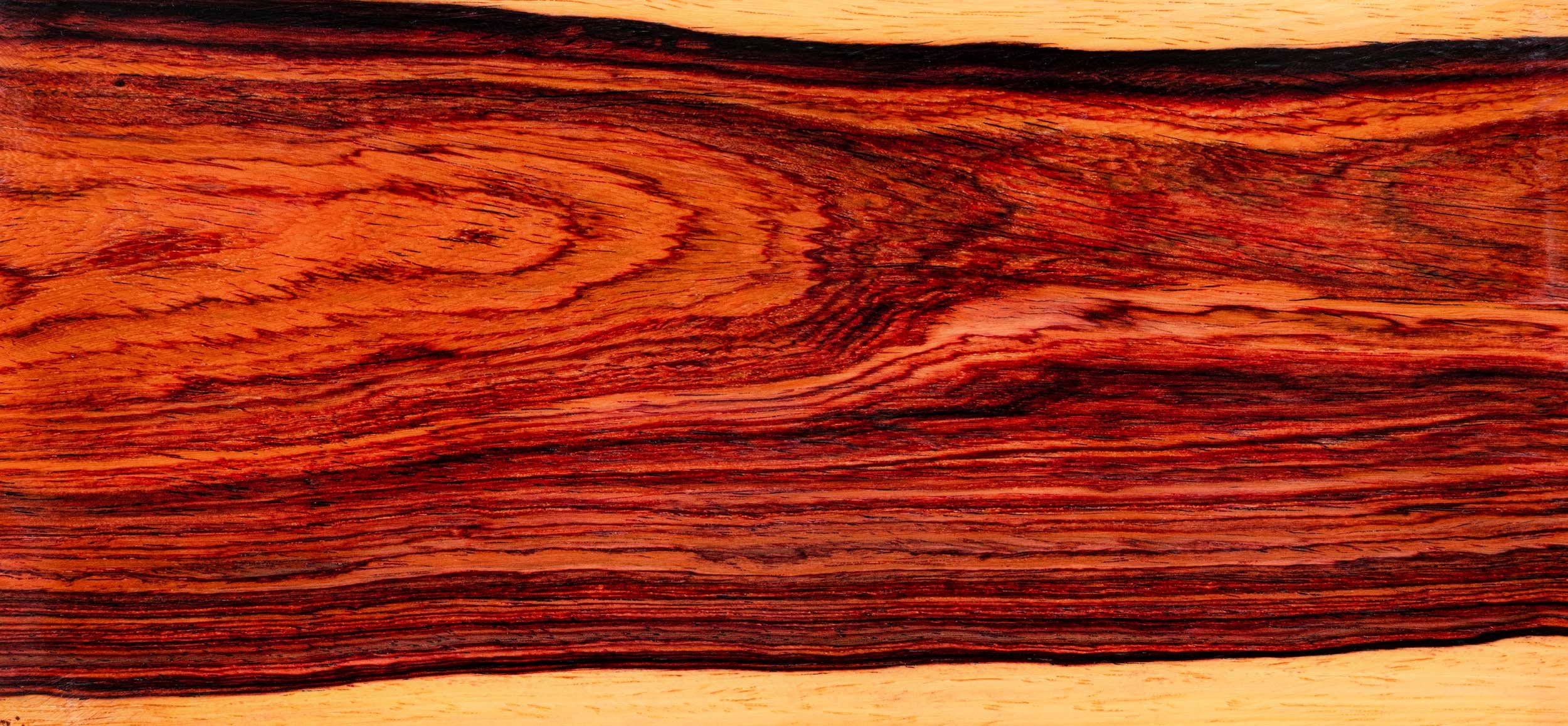Cocobolo Wood
Description/Overview: Cocobolo wood is a highly prized and exotic hardwood species that is native to Central America, primarily in Nicaragua, Panama, and Costa Rica. The wood is also known by various other names such as Granadillo, Palisander, and Dalbergia retusa. Cocobolo has a fine texture and a straight to interlocked grain, with a distinctive range of colors from yellow, orange, and red to dark brown, sometimes with a deep purple hue. The wood's unique properties include a high oil content that helps to prevent decay, insect damage, and moisture absorption.
Cocobolo wood is valued in the construction of luxury humidors due to its aesthetic appeal and natural durability. Its density, hardness, and resistance to moisture make it an ideal material for humidors that require a high-end finish. Its distinct color and grain pattern add to the beauty and uniqueness of the final product. Cocobolo wood is also used in the construction of other high-end products such as musical instruments, jewelry boxes, and decorative items.
Origin: North America, primarily found in the Pacific Northwest region.
Names: Quilted Maple, Flamed Maple
Color: Distinctive range of colors from yellow, orange, and red to dark brown, sometimes with a deep purple hue.
Properties: Cocobolo has a fine texture and a straight to interlocked grain.
Additional Info: 10 fun facts about Cocobolo wood:
Cocobolo wood is so dense that it sinks in water.
The wood's natural oils give it a distinctive smell that can last for years.
Cocobolo wood is sometimes called the "rosewood of Central America".
The wood is highly resistant to fungal and bacterial decay, as well as insect damage.
Cocobolo wood is used in the construction of luxury pens and other fine writing instruments.
The wood is considered one of the hardest and most durable in the world.
Some people can develop an allergic reaction to the wood's oils.
Cocobolo wood is often used in custom knife handles due to its strength and durability.
The wood's unique colors and patterns make it a favorite of woodworkers and artisans.
Cocobolo wood is becoming increasingly rare due to over-harvesting, leading to restrictions on its export and sale in some countries.



